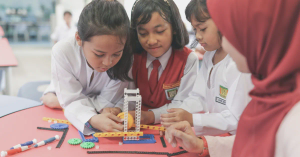Parental involvement in a child’s education significantly impacts their academic success and overall development. Engaged parents can foster a supportive learning environment, improve student performance, and enhance the educational experience. This article explores the importance of parental involvement in schools, the benefits it offers, and practical ways parents can become more engaged in their child’s education.
The Importance of Parental Involvement
Parental involvement refers to the active participation of parents in their children’s educational activities and school community. This involvement is crucial for several reasons:
- Academic Achievement: Studies have shown that students with involved parents tend to achieve higher grades and test scores, have better attendance, and are more likely to graduate.
- Behavior and Attitude: Active parental engagement helps in shaping positive behaviors and attitudes towards school, reducing instances of behavioral problems.
- Emotional Support: Parents who are involved provide essential emotional support, boosting their child’s confidence and motivation to succeed.
Benefits of Parental Involvement
Enhanced Academic Performance
Children whose parents are involved in their education typically perform better academically. This includes:
- Higher Grades: Regular parental support and encouragement can lead to improved grades and test scores.
- Better Study Habits: Involved parents can help children develop effective study habits and time management skills.
- Increased Motivation: A supportive home environment fosters a love for learning and intrinsic motivation.
Improved Behavior and Social Skills
Parental involvement positively influences a child’s behavior and social development:
- Better Behavior: Children with involved parents are less likely to exhibit behavioral problems and are more likely to adhere to school rules.
- Enhanced Social Skills: Active parental engagement helps children develop strong social skills and build better relationships with peers and teachers.
Stronger Parent-Teacher Relationships
Parental involvement strengthens the relationship between parents and teachers:
- Communication: Regular communication between parents and teachers leads to a better understanding of the child’s needs and progress.
- Collaboration: Parents and teachers can work together to address any issues and support the child’s learning journey.
- Trust: A strong parent-teacher relationship builds trust and encourages a collaborative approach to education.
Practical Ways for Parents to Get Involved
At Home
Parental involvement begins at home with simple yet effective practices:
- Create a Learning Environment: Designate a quiet, well-lit space for homework and study.
- Establish a Routine: Set a consistent schedule for homework, reading, and other educational activities.
- Show Interest: Regularly ask about school activities, projects, and homework to show interest in your child’s education.
- Read Together: Reading with your child fosters a love for books and enhances language skills.
At School
Engaging with the school community is equally important:
- Attend Meetings: Participate in parent-teacher conferences, school meetings, and events to stay informed and involved.
- Volunteer: Offer your time to help with school activities, field trips, and classroom events.
- Join the PTA: Become an active member of the Parent-Teacher Association to contribute to school decisions and initiatives.
- Support School Programs: Encourage and support your child’s participation in extracurricular activities and school programs.
Overcoming Barriers to Parental Involvement
Despite the benefits, some parents may face challenges in becoming involved in their child’s education. Here are ways to overcome common barriers:
Time Constraints
- Flexible Involvement: Look for ways to be involved that fit your schedule, such as helping with homework in the evenings or attending weekend events.
- Prioritize: Prioritize key activities and events that have the most significant impact on your child’s education.
Lack of Confidence
- Seek Resources: Utilize school resources and community programs that offer guidance on how to support your child’s education.
- Ask Questions: Don’t hesitate to ask teachers and school staff for advice or clarification on how you can help.
Communication Barriers
- Language Support: If language is a barrier, seek translation services or materials available in your language.
- Open Dialogue: Foster open communication with teachers and school staff, using email or school portals if in-person meetings are challenging.
The Role of Schools in Encouraging Parental Involvement
Schools play a crucial role in promoting and facilitating parental involvement:
- Welcoming Environment: Create an inclusive and welcoming atmosphere for parents.
- Regular Updates: Provide regular updates on student progress and school activities through newsletters, emails, and parent portals.
- Parent Education: Offer workshops and resources to help parents understand how they can support their child’s learning.
Conclusion
Parental involvement in education is vital for a child’s academic success and overall well-being. By actively participating in school activities and creating a supportive home environment, parents can significantly enhance their child’s educational experience. Overcoming barriers to involvement and working collaboratively with schools will ensure that children receive the best possible support in their learning journey. Investing time and effort into being involved in your child’s education is an investment in their future success and happiness.







